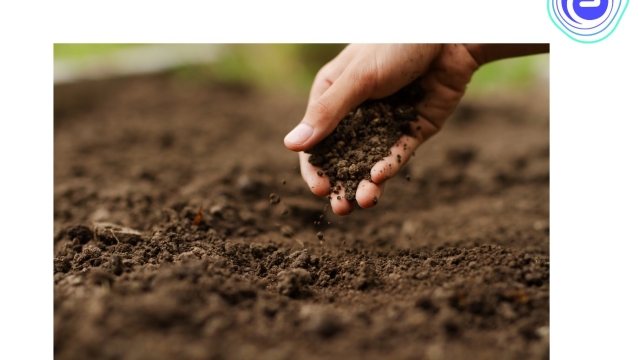
Unlocking the Secrets of Organic Soils: A Green Revolution From the Ground Up
Organic soils hold the key to unlocking a green revolution in our gardens and agricultural practices. These naturally rich and nutrient-dense soils have been cultivated over time through the use of organic matter and careful stewardship of the land. With their ability to retain moisture, promote healthy root growth, and support vibrant ecosystems, organic soils offer a sustainable foundation for growing a wide range of plants, from fruits and vegetables to ornamental flowers.
In an era where environmental concerns are at the forefront, organic soils offer a natural solution to reducing our reliance on synthetic fertilizers and harmful chemicals. By harnessing the power of nature’s own processes, organic soils nourish the soil food web – an intricate network of microorganisms, insects, worms, and plants – allowing for a balanced and resilient ecosystem.
In this article, we will delve into the secrets of organic soils and explore the benefits they bring to our gardens. We will also uncover the various methods of creating and maintaining organic soils, including the use of compost, cover crops, and mulching. Furthermore, we will explore the different types of organic fertilizers available, ensuring that every garden can find the perfect nutrient boost for their plants.
So join us as we embark on a journey to discover the wonders of organic soils and embrace a greener future, starting from the ground up. Get ready to dig deep and unlock the secrets of promoting sustainable growth and vibrant ecosystems in your own backyard.
The Benefits of Organic Soils
Organic soils offer a multitude of advantages that can greatly enhance the health and productivity of your garden. Unlike conventional soils, which rely heavily on synthetic fertilizers and harmful chemicals, organic soils harness the power of nature to nourish and sustain plant life. By prioritizing the use of organic matter and natural fertilizers, organic soils promote a harmonious relationship between plants, microorganisms, and the environment.
Enhanced Nutrient Content: Organic soils are abundant in essential nutrients that are crucial for plant growth and development. The organic matter present in these soils releases nutrients slowly and steadily, ensuring a continuous supply of nourishment for plants. This nutrient-rich environment promotes stronger root systems, healthier foliage, and increased crop yield.
Improved Soil Structure: Unlike their conventional counterparts, organic soils are characterized by their loose and crumbly texture. This improved soil structure allows for better aeration and water drainage, preventing issues such as waterlogging and soil compaction. Additionally, the presence of organic matter enhances the soil’s ability to retain moisture, reducing the frequency of watering and minimizing water wastage.
Environmentally Friendly: Using organic soils not only benefits your garden but also contributes to the overall health of the environment. By eliminating the use of synthetic fertilizers and pesticides, organic soils help prevent water and air pollution. Furthermore, the organic matter in these soils acts as a carbon sink, effectively sequestering carbon dioxide from the atmosphere and mitigating climate change.
In conclusion, the advantages of organic soils, such as their nutrient content, improved soil structure, and environmental benefits, make them an excellent choice for gardeners seeking sustainable and eco-friendly practices. By embracing organic gardening techniques, we can unlock the secrets of organic soils and embark on a green revolution from the ground up.
Choosing the Right Organic Fertilizer
When it comes to organic soils, choosing the right fertilizer is key to unlocking their full potential. With the abundance of options available, finding the perfect match for your garden can be a daunting task. However, armed with a little knowledge and a keen eye, you can select the ideal organic fertilizer to nourish your plants and promote a thriving, green revolution from the ground up.
First and foremost, consider the nutrient composition of the organic fertilizers you come across. Different plants have varying nutrient requirements, so it’s vital to find a fertilizer that meets these needs. For example, nitrogen is essential for leaf and stem growth, while phosphorus aids in root development and flowering. Potassium, on the other hand, promotes overall plant vigor and disease resistance. By identifying the specific nutrient needs of your plants, you can make an informed decision on which organic fertilizer to choose.
Secondly, pay attention to the fertilizer’s release rate. Some organic fertilizers provide a slow release of nutrients, allowing for gradual absorption by the plants over time. This can be beneficial as it reduces the risk of nutrient leaching and ensures a steady supply of nourishment. Conversely, fast-release organic fertilizers deliver nutrients more immediately, which can be advantageous for quick-growing plants or those in need of a nutrient boost. Consider the growth cycle and requirements of your plants to determine the most appropriate release rate for your chosen organic fertilizer.
Finally, take into account the origin and production process of the organic fertilizer. Look for certifications such as "OMRI Listed" or "USDA Organic" to ensure that the product meets organic standards and has gone through rigorous testing. Additionally, consider supporting local and sustainable options when possible. By choosing organic fertilizers that align with your environmental values, you can make a positive impact on both your garden and the wider ecosystem.
In conclusion, selecting the right organic fertilizer for your garden is a crucial step in maximizing the benefits of organic soils. By understanding the nutrient composition, release rate, and sourcing of the fertilizers, you can make an informed decision that supports your plants’ specific needs and contributes to a greener revolution from the ground up.
Practical Tips for Organic Gardening
Choose the Right Soil: Organic gardening starts with the foundation of healthy soil. It’s essential to select the right soil type that is rich in nutrients and well-draining. Look for organic soil mixes or compost that are specifically designed for gardening without the use of synthetic chemicals. This will ensure that your plants receive the necessary nutrients to thrive naturally.

Composting for Nutrient-Rich Soil: Composting is a valuable practice in organic gardening. It involves recycling organic waste like fruit and vegetable scraps, coffee grounds, and yard trimmings to create nutrient-rich compost. Start by setting up a compost bin or pile in your garden and add the organic materials regularly. Over time, the compost will break down into nutrient-rich humus that can be added to your garden beds to enrich the soil naturally.
Natural Pest Control: Maintaining a pest-free garden without the use of harmful chemicals is achievable through natural pest control methods. Encourage beneficial insects like ladybugs and praying mantises, which help in keeping pest populations in check. Additionally, companion planting, where you strategically grow specific plants together to deter pests, can be effective. For example, planting marigolds around your vegetable garden can repel pests like aphids and nematodes.
When to harvest onion
Remember, organic gardening is a journey that requires patience and commitment. By following these practical tips, you can create an environmentally-friendly garden that not only benefits your plants but also promotes a healthier ecosystem overall. Happy gardening!




